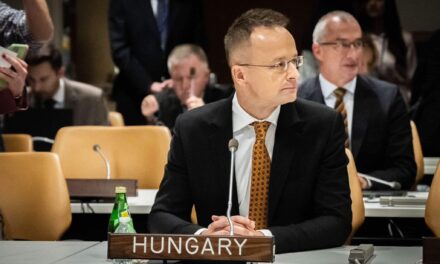In recent months, the shadow minister of the Gyurcsánys has talked about an untenable minimum wage, unnecessarily scattered sja refunds and gun money. Ferenc Dávid also defended the multi-companies, as he believes that the introduction of the extra profit tax is a bad direction. The concluding part of our series of articles presenting the economy minister of the shadow government led by Mrs. Gyurcsány also reveals that, according to the economist, no migrants came to Hungary either.
In addition to the rejection of price discounts and utility reductions, the minimum wage has also been attacked by the Gyurcsánys' "shadow" economy minister in the past period.
This is not surprising either, since Ferenc Dávid is one of the vanguards of Gyurcsány's economic policy, which represents the interests of multinational companies over the people. Last year, the economist spoke on the ATV Start program about the fact that, in his opinion, the HUF 200,000 minimum wage cannot be accepted - read the Origó article.
But the entrepreneurs still need to be told something now, if we raise it from HUF 167,400 to HUF 200, what will it cost? And what they don't say again is that it will push the guaranteed minimum wage, which has many more people. Roughly, there are 300,000 people on the minimum wage, 350,000 on the guaranteed minimum wage, exactly twice that - explained the DK politician. Then, when asked by the presenter whether businesses could pay the higher wages, Ferenc Dávid answered: "in this tax environment, no, it cannot be undertaken".
The DK economist defends the extra profit of multi-companies. Gyurcsányék's shadow minister therefore tried to argue against wage increases, while his party and the entire left are constantly demanding higher salaries.
It is also a fact that the practice of the period since 2010 proved that the significant increase of the minimum wage from year to year did not cause problems for businesses, and even the growing purchasing power of people and the expanding consumption at the same time resulted in extra income for production and service companies.
In contrast to the economic policy of the Orbán government - which is based on work, the stimulation of investments and the ever-expanding consumption of people - the practice of the Gyurcsánys before 2010 was characterized by austerity, high taxes and the support of multinational companies. This approach is also reflected in Ferenc Dávid's statements, for example in May he called the taxation of the extra profits of multinational companies clearly the wrong direction in the ATV.
While the left-wing shadow minister stood up for the protection of the profits of large companies, he called the measures to help the population and families, which the government took after the economic difficulties caused by the coronavirus, but before the war, as "absurd". More than a month ago, in ATV, Dávid Ferenc dissected the budgetary effects of inflation and said:
...within a year, thousands of billions of forints were squandered and scattered here, without thinking, without the principle of need, everything from money to gun money, now they have taken it back, and they are spreading their hands that the coffers are empty.
The DK politician therefore called the allowances paid to soldiers and police officers, which were otherwise legally prescribed, as unnecessarily wasted money, and he regrets the personal income tax refunded from family members. Ferenc Dávid also previously called it incomprehensible why young people under the age of 25 were given a tax exemption.
In light of all this, it can be stated that the economic policy of the shadow government of Gyurcsány's wife, Klára Dobrev, would not promise much good for the Hungarians, but international corporations would do well.
Tax increases, withdrawal of discounts and benefits, lower wages and drastic overhead costs would hit people, just like before 2010, during the administration of Ferenc Gyurcsány.
Source and full article: Magyar Nemzet
Featured image: YouTube












